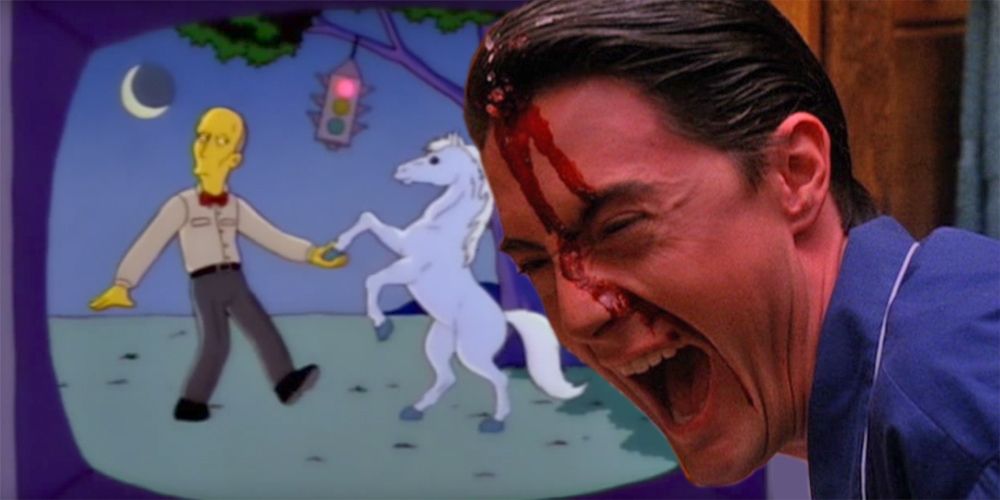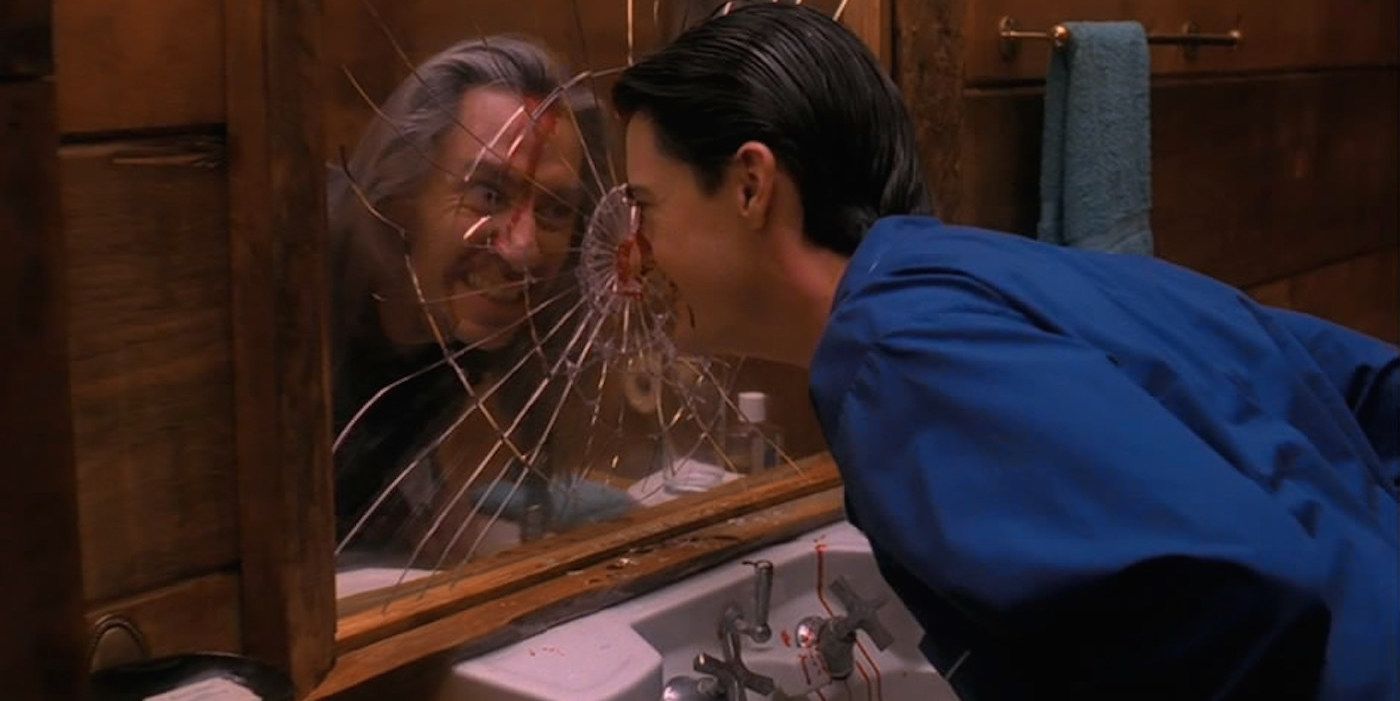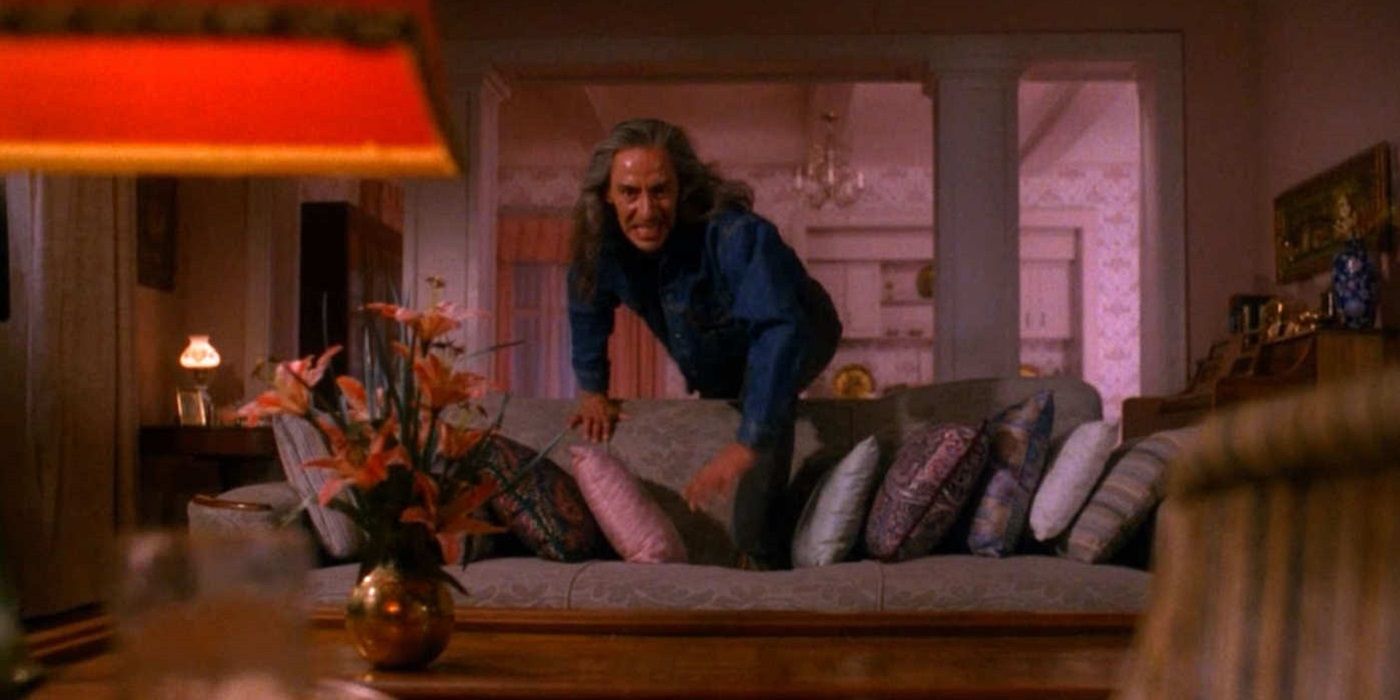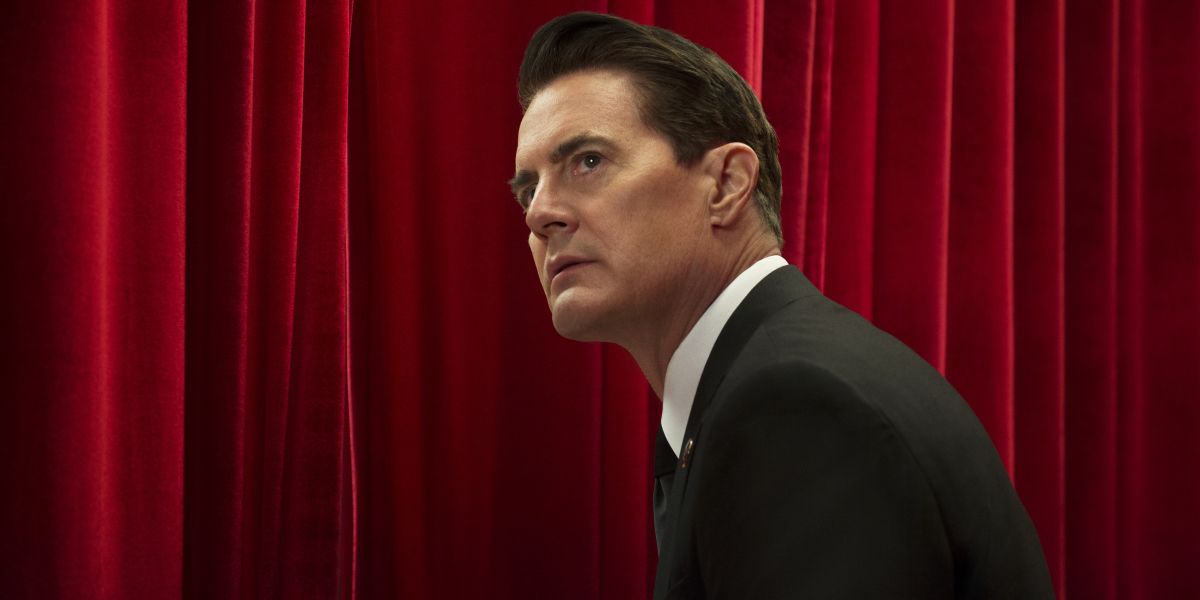After twenty-five years, Twin Peaks is back, so maybe we can now finally get over the hate for the underrated Season 2. The general reaction to the first few hours of Season 3 (or The Revival, as it's being dubbed) has been incredibly positive, with Peaks Freaks relishing finally learning to what happened to Cooper in the Black Lodge and getting to experience fresh horror-weirdness from the mind of David Lynch.
That the fanbase's response is pretty harmonious is surprising given how, over the past weeks, there's been a lot of internet ink spent dissecting the original run of Twin Peaks and prequel movie Fire Walk With Me. In all that, nobody seems able to agree what exactly Twin Peaks is; is it a genuine murder mystery, an exploration of Americana, a soap opera pastiche, a dissection of television as a medium or a melodramatic horror? The answer seems to be all of that and none of it. The only thing people can agree on is that Season 2 was a major let down.
But, the thing is, it actually isn't. Yes, it's not as good as Season 1; from the start it's needlessly weird (explanation of that begins and ends with Piper Laurie in yellowface) and as it wears on its flaws become increasingly obvious, yet it still has in its first half the show's best run of episodes and a knock-out finale, as well as a lot of fun along the way. Besides, in a turn that's fitting of the strange show, qualitative concerns aren't really the reason why it's regarded as it is.
The Ratings Drop Wasn't Directly Related To Quality
The first season, consisting of a double-length pilot and seven regular episodes, was a rightful phenomenon, with its mix of familiarity and weirdness pitched perfectly, the appeal of serialized primetime television irresistible and the powering mystery of who murdered high school Prom Queen Laura Palmer enrapturing a nation. The opener brought in 34.6 million viewers and even at its lowest the season was still drawing upwards of 15 million, numbers that today would send even the producers of The Walking Dead and Game of Thrones running for the Dom Perignon.
Season 2 picked up that baton with gusto and actually introduced many of the show's defining elements; when Homer watches the show in The Simpsons episode "Lisa's Sax" and remarks "Brilliant, I have absolutely no idea what's going on" he's reacting to the pale horse and the Giant, two "characters" only introduced in this second year. However, as it ran through its vastly increased episode run (up from eight to a standard twenty-two) those viewing figures fell - at their lowest, the show was barely making 7 million, a fifth of that first episode. By the time it came to a close, the show's producers knew cancellation was all but definite.
These facts alone are a big reason why the second season isn't well regarded. In the pre-internet age, viewing figures were the only collated metric of a series' success, and with only three main channels (Fox was only just on the rise with The Simpsons at this point) a drop had to mean something was seriously wrong. When Twin Peaks wasn't renewed, it was taken as a direct reflection of its quality, with other concerns not even being considered. And, of course, as many people had dropped off, there were fewer to say "wait, no, there's some good stuff here" and so the presumption of being poor propagated. But, really the viewership drop is a symptom of something else, rather than a sign of poor quality.
So what happened in Twin Peaks Season 2 that led to such a turn, then? A big part of it is that the network moved it from Sunday night to Saturday, a difficult shift for any narrative show, especially one that required weekly investment - in the days before catch-up that was suicide. And when it came down to the decision between staying in and going out, Peaks eventually nullified itself; they answered the key question.
Next Page: [valnet-url-page page=2 paginated=0 text='How%20The%20Laura%20Palmer%20Reveal%20Killed%20Twin%20Peaks']
How The Laura Palmer Reveal Killed Twin Peaks
By all accounts, David Lynch and Mark Frost had never planned to reveal who killed Laura Palmer. Whether they knew who even did it when they began is up for debate. But there's no avoiding that was the show's core appeal, and as the second season wore on the network grew increasingly angsty about this; seeing an early Season 2 drop when the story began to diverge into more eccentric directions of tangential importance they demanded a resolution. So it was that in Season 2 Episode 7, less than halfway through the season, Twin Peaks answered its defining question; Laura has been killed by her father, Leland, who had been abusing her for years under the influence of malevolent evil spirit BOB).
This and the surrounding episodes are some of Twin Peaks' best, the perfect example of how Lynch was able to go full-pelt weird and deliver it to a mass audience. This led to a massive uptick in viewership for a few weeks, but then with no major narrative power behind it, it dropped again. Quite what ABC was thinking is unclear, but if you believe that people are only watching for a mystery, you don't answer that mystery in a rush (something they learned from with Lost, although there delay led to eventual annoyance as well).
With the Palmer incest-murder resolved, Twin Peaks only continued in the narrative direction it had been going in previously - the darkness of the Black Lodge and evil designs of Dale Cooper's former partner Wyndham Earl. You know, exactly what had started to turn viewers off and was hardly of interest to those brought back by the resolution. And without the mystery to underpin it, things began to unravel; what is intriguing as side-product doesn't quite work as the primary focus.
At the same time, Lynch and Frost moved away from the show; they had other creative commitments and so handed over the reigns to other writers and directors. And as anyone who's ever seen something not by David Lynch self-described as intentionally Lynchian, you know that's going to be troubled.
Lynch has been open about how Season 2 lost a step, so there literally is no one who will debate that it took a turn. It's just not as focused as Season 1 or the subsequent Fire Walk With Me, which, while divisive for its more out-there tone is evidently the product of Lynch. That said, we still have a half-season that's great, a finale where Lynch returned with gusto and even the lowest moment in between are still pretty good by all standards; it's more about what came before being so great and the expectations they birthed being even higher than the show becoming genuine dreck.
Will It Be Reevaluated With Season 3?
When you break it down, much of the backlash comes from that aforementioned core confusion over what Twin Peaks is. The majority of people were there for the Laura Palmer mystery, but as we already said that was always a secondary concern - the death was an excuse to peel back the facade of Twin Peaks, revealing the literal battle between good and evil and metaphorical darkness of the American dream (yes, that literal/figurative distinction is the right way round). Everything that was done in Season 2 was in service of that, and evidently that's just not what audiences wanted (or, perhaps, weren't ready for) in the 1990s.
Now we have The Revival, which in its first hour steps well beyond being related to Laura Palmer (heck, most of the first four episodes aren't even set in the eponymous Washington town), this may be more clear. Twin Peaks Season 2 was already stronger on binge watch where the waits for episodes didn't exist, frustration with individual elements was less prolonged and the bigger picture was more instantly evident, and now it's not even the end.
Like how the Star Wars prequels are less heavily eviscerated because the Disney-era films have been so well received, so too hopefully will the arrival of Season 3 allow fans to let the many positives of Season 2 stand by themselves and not be dragged down my questionable moments. Homer was right - it is kind of brilliant.
Twin Peaks: The Return will continue to air on Sunday nights @9pm on Showtime.




